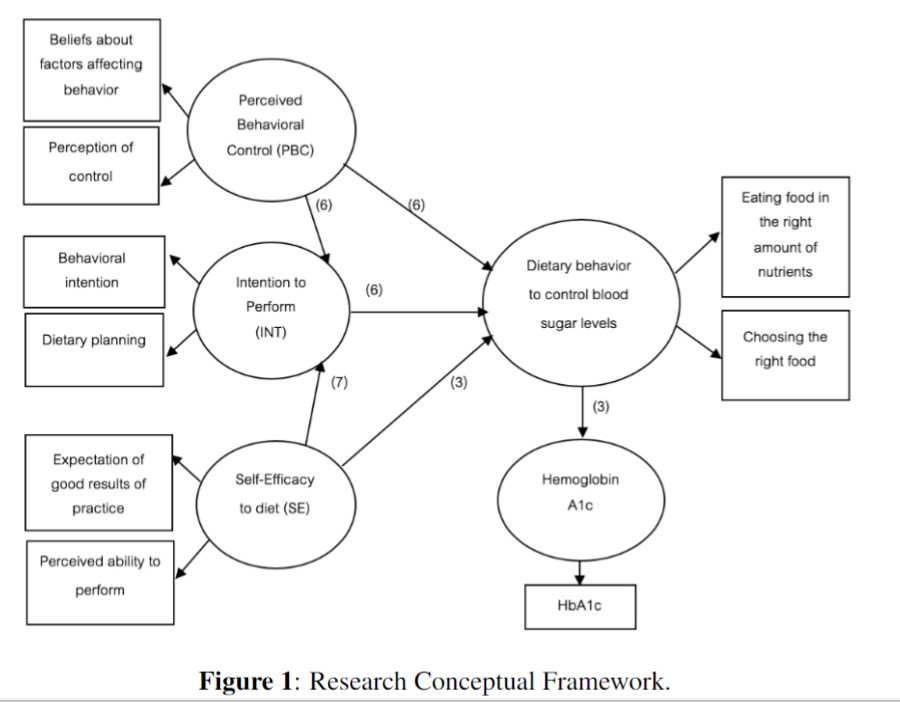A causal relationship structure model of dietary behavior to control blood glucose levels of type 2 diabetes mellitus patients
Main Article Content
Abstract
The study results revealed that a causal relationship structure model of dietary behavior to control blood glucose levels of type 2 diabetes mellitus patients fit with the empirical data and could explain 83% of the variance in dietary behavior to control blood glucose levels affecting blood sugar levels. Dietary behavior to control blood glucose levels had a direct negative effect on glycated hemoglobin levels (HbA1c)
The study concludes that the perceived behavioral control, self-efficacy to diet, and intention to perform the behavior directly affected dietary behavior to control blood glucose levels of type 2 diabetes mellitus patients.
Article Details

This work is licensed under a Creative Commons Attribution-NonCommercial-NoDerivatives 4.0 International License.
References
Bureau of Non-Communicable Diseases Department of Disease Control. Percentage indicator of patients with diabetes and hypertension that can be controlled 2017, Bureau of Non-Communicable Diseases Department of Disease Control, 2017.
Health MoP, Percentage of patients with diabetes and controllable hypertension, Ministry of Public Health, 2018.
S. A. Brown, textit{et al.}, Biobehavioral determinants of glycemic control in type 2 diabetes: A systematic review and meta-analysis, Patient Education and Counseling 99(10) (2016) 1558-1567.
American Diabetes Association, Standards of Medical Care in Diabetes, Diabetes Care 29(3) (2017) 33-43.
K. A. Cradock, textit{et al.}, Diet behavior change techniques in type 2 diabetes: A systematic review and meta-analysis, Diabetes Care 40(12) (2017) 1800-1810.
S. Thepsuriyanon, A causal model of dietary behavior of diabetic patients, Journal of Nursing and Health 9(2) (2015) 10-22.
H. Rohani, M. Bidkhori, A. A. Eslami, E. Sadeghi, A. Sadeghi, Psychological factors of healthful diet promotion among diabetics: an application of health action process approach, Electron Physician 10(4) (2018) 6647-6654.
J. F. Hair, J. W. C. Black, B. J. Babin, R. E. Anderson, Multivariate data analysis: a global perspective, Pearson Education, 2010.
W. Jeamjaratrangsee, Type 2 diabetes, epidemiology, prevention and support for self-management, Tex and Journal Publication Company Limited (2017).
L. Sinkariova, B. Mieziene, Motivational process of eating behaviour in diabetes patients: applying theories of planned behaviour and self-determination, The European Health Psychologist 18(Supp) (2016).


